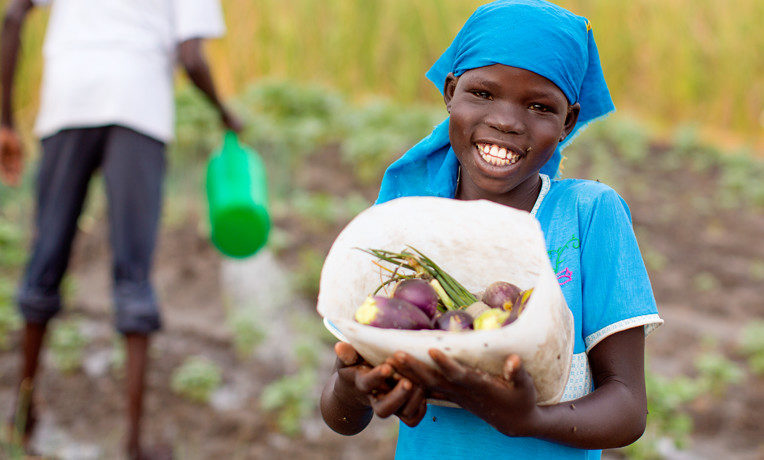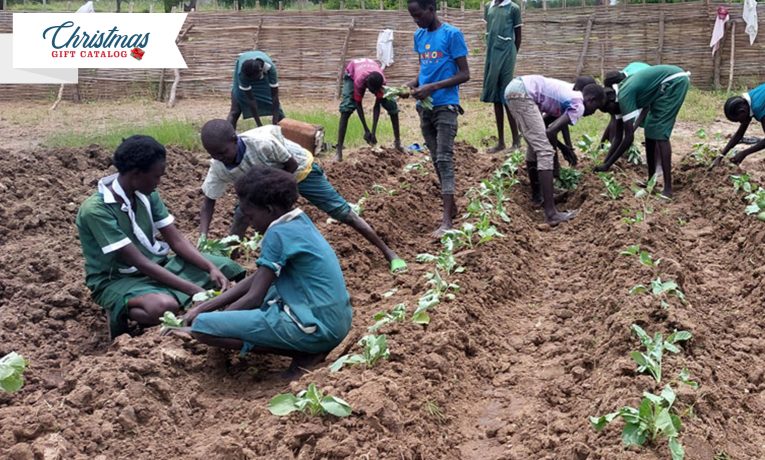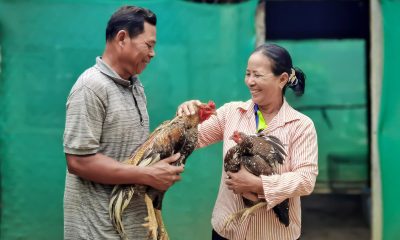Samaritan’s Purse started agriculture clubs to help students and teachers learn to grow new types of vegetables and increase their intake of important nutrients.
Children living in impoverished villages in South Sudan often struggle to have enough food to eat. While school feeding programs are providing students with a meal during the school day, the meals lack vegetables, meaning micronutrients such as iodine, iron, and vitamin A are absent from a student’s diet.
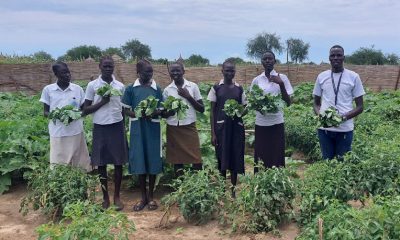
Members of an agriculture club with the kale they harvested.
Samaritan’s Purse has stepped in to help bridge the nutrition gap by starting agriculture clubs and teaching students how to grow leafy vegetables in order to enrich their diet. In the area of Agok, our teams have begun clubs in five schools, providing vegetable seeds, gardening tools, and agricultural training to both students and teachers. The training includes tasks such as nursery bed raising, pest and disease control, and harvesting and post-harvesting.
At least two teachers per school participate in the training and then continue to help with maintenance of the school garden. Parents and community members are also involved by providing fencing materials for the gardens.
A New Opportunity
Most vegetables introduced through the Samaritan’s Purse school gardens—such as kale and jute—are not commonly consumed, only because in the past people haven’t been taught how to grow them. Before our program started, many people were supplementing their diet by searching for and consuming wild vegetables that could prove harmful to their overall health.
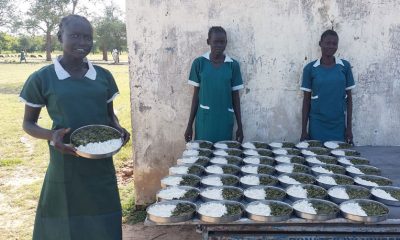
School meals are now supplemented with vegetables from the garden on campus.
“Planting vegetables at the school garden has reduced the risk that comes with looking for wild vegetables,” explained Awal, leader of one of the agriculture clubs.
Awal also said that the school garden project has taught students how to work together as a team and developed among them a “culture of sharing.”
“We are ready to demonstrate this to other schools,” she said.
Ring, head teacher at a primary school, shared that the agriculture clubs are proving invaluable to his students.
“Introducing agricultural activities to youth at an early stage is the key to household food security, since in most homes the children help their parents with the garden work,” Ring said. “I thank Samaritan’s Purse for showing children how to grow a variety of vegetables.”
